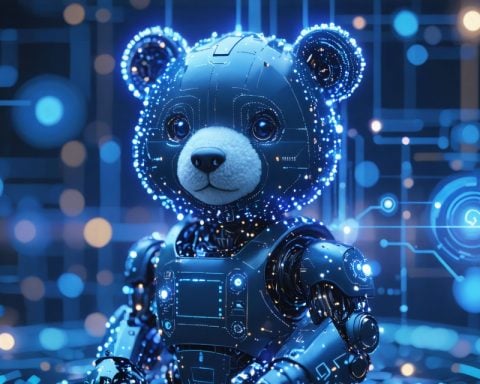Our concept of retirement age may soon face a revolutionary shift, influenced by emerging technologies. Traditionally, retirement has been defined by a fixed age, where individuals withdraw from the workforce. However, in the face of rapidly evolving artificial intelligence and automation, there’s a pressing need to rethink this paradigm.
New Technologies, New Potential
As industries integrate advanced technologies, particularly AI, the nature of work is transforming. This shift is redefining job roles, skill requirements, and even the notion of a career lifespan. With machines taking over repetitive tasks, humans have the opportunity to focus on creative, strategic, and supervisory responsibilities. This creates a compelling argument for a flexible retirement age, tailored to individual capabilities and desires rather than arbitrary numbers.
A Choice, Not a Cut-Off
Imagine a future where retirement isn’t an age-bound milestone but a personal choice, aided by supportive technologies. Wearable health tech and AI-driven wellness programs could enable older professionals to remain in the workforce longer, maintaining both productivity and personal fulfillment. Moreover, the gig economy, powered by digital platforms, provides retirees avenues for part-time work or consultancy, aligning better with personal goals and interests.
The Road Ahead
Re-imagining retirement in the light of technological advancement is not just a possibility; it’s a necessity. As we continue to integrate these technologies into our lives, developing policies that enable flexible retirement will be crucial. This future could transform the end of one’s career into a dynamic, empowering phase of life.
How AI and Automation Could Revolutionize Retirement: A New Perspective
Emerging Trends in Retirement
The traditional notion of retirement as a fixed-age milestone is undergoing significant scrutiny due to the rapid advancement of artificial intelligence and automation technologies. These technological shifts present both challenges and opportunities, prompting a reevaluation of how and when individuals choose to retire.
How AI and Automation Are Reshaping Work
AI and automation are infiltrating nearly every industry, changing the landscape of job roles and career paths. By automating repetitive tasks, these technologies allow individuals to engage in more strategic, creative, and supervisory roles. This transformation suggests that careers could extend beyond current retirement ages, providing the liberty to retire at a point that aligns with personal abilities and interests rather than a standardized age limit.
Pros and Cons of a Flexible Retirement Age
– Pros:
– Extended career opportunities for maintaining activity and purpose.
– Personalized retirement plans tailored to individual health and career aspirations.
– Enhanced productivity and satisfaction through roles that leverage personal talents and interests.
– Cons:
– Potential generational inequality in workforce dynamics.
– Challenges in implementing policies that support a flexible retirement system.
– Need for ongoing education and skills development as job roles evolve.
Security and Sustainability Considerations
As individuals work later into their lives, the importance of secure workplaces and sustainable work practices becomes more pronounced. AI-driven technologies could enhance safety by predicting and mitigating workplace hazards. However, achieving sustainable workforce integration will depend on developing robust policies that manage these transitions effectively.
The Impact on Market Dynamics and Predictions
The integration of AI and automation in the workplace is expected to impact labor markets significantly, potentially increasing demand for tech-savvy employees over time. It is predicted that industries will have to pivot towards upskilling and reskilling initiatives to equip employees with the necessary capabilities to adapt to new roles.
Innovative Retirement Solutions and Future Predictions
Future retirement frameworks might include diverse career models, flexible scheduling, and hybrid work opportunities, allowing individuals to tailor their retirement journeys according to personal aspirations. Predictive analytics could offer valuable insights for planning financial security in longer and more varied career paths.
Exploring New Frontiers
For more insights into the intersection of technology and employment, visit NBC News. Their coverage on technological innovations offers a detailed exploration of how emerging technologies influence market trends and individual careers.
In conclusion, as new technologies continue to reshape the world of work, questioning and redefining retirement becomes essential. With careful policy planning and strategic integration of AI, the end of one’s career could transform into a period of empowerment and renewed opportunity rather than a definitive ending.


















